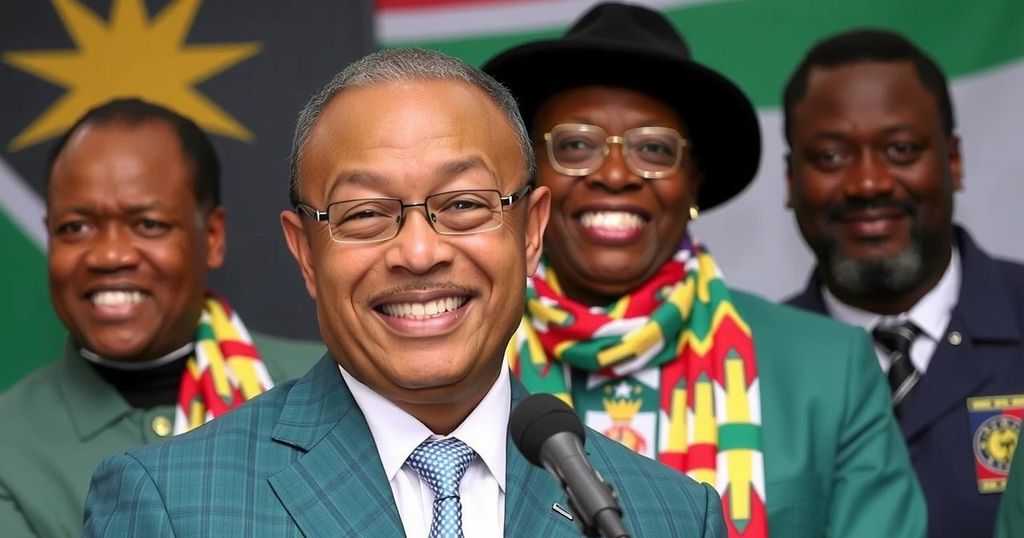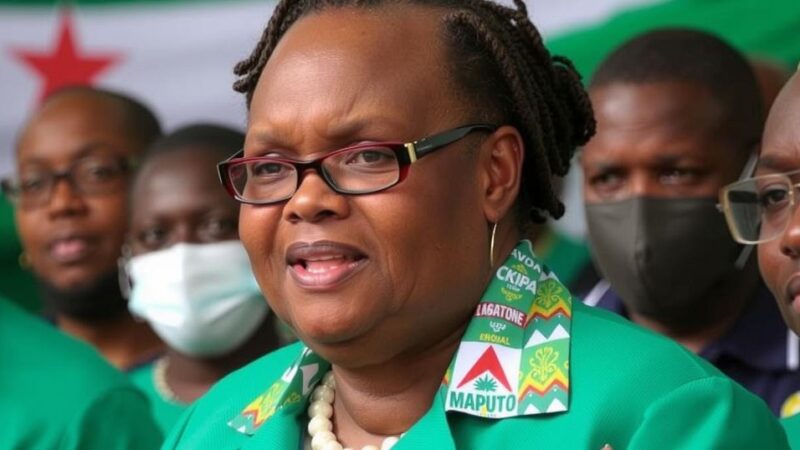Namibia’s ruling party, Swapo, has retained power, yet faced significant electoral losses in the legislative elections, reflecting a broader trend across sub-Saharan Africa, where many incumbents have encountered increased opposition and public dissatisfaction. Key factors contributing to this trend include economic hardship and rising intolerance of corruption, signaling a robust momentum for democratic change and accountability.
Namibia’s ruling party, Swapo, has maintained its power for over three decades, though the recent elections have revealed vulnerabilities in its dominance, reflective of a broader trend observed throughout sub-Saharan Africa this year. The Swapo candidate, Netumbo Nandi-Ndaitwah, secured victory in the presidential election, capturing 57% of the votes, thereby becoming the first female leader of the country. Nonetheless, significant challenges arose during the electoral process, including logistical issues and allegations of irregularities made by opposition parties who have contested the election results.
Despite holding on to the presidency, Swapo faced its worst performance in legislative elections, shedding 12 seats and barely preserving its parliamentary majority. This scenario aligns with a worrying pattern observed across the region, where many longstanding governments have confronted adversity in electoral competitions. The rise in public dissatisfaction, driven by economic hardship and widespread perceptions of corruption, has fueled opposition parties and their efforts to challenge incumbents.
The political landscape in Africa has markedly changed in 2024, with substantial electoral defeats for previously dominant parties such as Botswana’s BDP and Mauritius’s Alliance Lepep. Botswana’s BDP, which governed since independence in 1966, dramatically fell from 38 to merely four seats in parliament, marking a profound loss of influence. Similarly, Mauritius experienced a historical political shift as the ruling coalition was reduced to just two parliamentary seats.
In Senegal, an equally transformative election unfolded, with the main opposition leader triumphing despite efforts by the government to manipulate the electoral process. Importantly, even parties that retained power, like South Africa’s ANC, did so under significantly altered circumstances, including entering coalition agreements, which underscores the weakening grip of traditional ruling parties. This trend exhibits a favorable emergence of multiparty political systems in several sub-Saharan countries, indicating a shift towards greater democratic engagement and accountability.
Throughout the region, growing concerns about governance and economic performance have fostered stronger opposition coalitions and led to an upsurge in citizen activism. The conditions leading to this year’s electoral disappointments for incumbents, characterized by rising living costs and heightened expectations for democratic freedoms, present a complex political tapestry.
As nations like Ghana brace for potential electoral changes, the current political climate signals a noteworthy resilience against authoritarian tendencies, suggesting that Africa’s political landscape is evolving resiliently. The trends from 2024 demonstrate that sub-Saharan Africa may possess deeper democratic capacity than is commonly acknowledged, deserving recognition from international observers devoted to preserving democracy globally.
The article discusses the recent electoral landscape in Namibia and other sub-Saharan African nations, investigating the challenges faced by long-standing ruling parties in light of increasing public dissatisfaction. Through the lens of Namibia’s recent elections, where Swapo retained power but suffered legislative losses, the article situates these events within a broader context of political upheaval that has gripped the region. It articulates how economic woes, public intolerance of corruption, and more organized opposition efforts have precipitated significant electoral setbacks for governments traditionally seen as secure.
The electoral outcomes in Namibia and other sub-Saharan African nations reflect a substantial shift in political dynamics, characterized by declining support for long-standing parties due to public discontent over governance, economic management, and corruption. This year has seen numerous governing parties face unprecedented defeats, pointing towards a possible reawakening of democratic engagement across the continent. The political landscape demonstrates a resilient push for accountability and change, setting a precedent for future electoral contests.
Original Source: www.bbc.com







